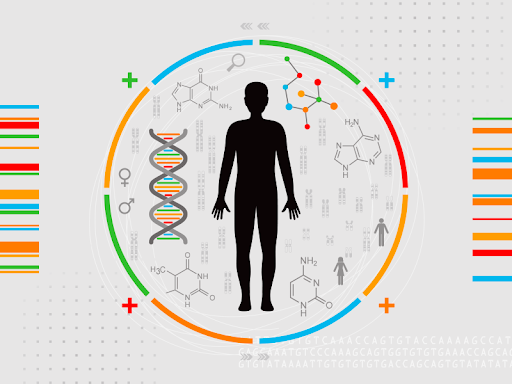Personalized Medicine: Just a Trend?
- gupta.janavi
- May 29, 2022
- 4 min read
By Anagha Dogirapathi
For the last century, medicinal cures and treatments have usually been generalized- meaning that no one ever really considered whether a certain medicine would work for one individual over another. This is a process that seems to have worked for the time being, but it's unclear whether it will continue to be this way. As new diseases and disorders continue to emerge, scientists continuously begin to explore the world of personalized medicine and the benefits it can provide.
Personalized medicine is an emerging form of treatment that uses an individual’s genetic information to aid the prevention, diagnosis, and treatment of a disease. As opposed to the traditional form, this type would not require a patient to go out of their way to book an appointment with their primary physician in order to report any symptoms they would have. The process would be speeded up significantly, as the doctor would have patients’ genetic history readily available to determine their susceptibility to certain diseases.

https://www.kaufmanhall.com/insights/article/precision-medicine-future-now - Personalized medicine becomes increasingly popular as further research is conducted.
One big contributor to personalized medicine is heavy genetic research for a certain disease- it would be very hard to come up with a solution if there isn’t enough information on a certain gene and its impact. This brings up a problem that many scientists and researchers are now realizing; with a lack of racial representation, creating solutions that work for everybody becomes increasingly difficult.
In the case of a polygenic risk score, which is a DNA-based tool that helps enhance the ability to predict diseases, many have observed that most information is derived from people with European ancestry. This means that if a person of color were to use the same test, it's unlikely that the results will match the level of accuracy required to make a diagnosis.
Increased data and diversity in research will inevitably help make predictions easier to finalize and determine diseases ahead of time. Since those of different races will approach different situations in different ways, solidifying the differences and ensuring that the test-taker is getting the most accurate results will help.
Although the definition of personalized medicine and its importance has become clear, what are some applications of it?
Let’s imagine a scenario where a group of people has been diagnosed with a specific condition. These people are not related and are almost randomly selected (meaning there is no correlation between each person other than their disease). There are two drugs (Drug A, Drug B), that can be used to treat this specific disease, but each one has been shown to have high toxicity levels for certain individuals. Doing genetic profiling for each person participating in the study would allow scientists or doctors to understand which drug would work best with each respective group of people. Not only is this much more efficient than asking people about their experiences with the drug, it also has the potential to speed up the treatment process and save thousands of lives.

https://www.kaufmanhall.com/insights/article/precision-medicine-future-now - Personalized medicine becomes increasingly popular as further research is conducted.
One big contributor to personalized medicine is heavy genetic research for a certain disease- it would be very hard to come up with a solution if there isn’t enough information on a certain gene and its impact. This brings up a problem that many scientists and researchers are now realizing; with a lack of racial representation, creating solutions that work for everybody becomes increasingly difficult.
In the case of a polygenic risk score, which is a DNA-based tool that helps enhance the ability to predict diseases, many have observed that most information is derived from people with European ancestry. This means that if a person of color were to use the same test, it's unlikely that the results will match the level of accuracy required to make a diagnosis.
Increased data and diversity in research will inevitably help make predictions easier to finalize and determine diseases ahead of time. Since those of different races will approach different situations in different ways, solidifying the differences and ensuring that the test-taker is getting the most accurate results will help.
Although the definition of personalized medicine and its importance has become clear, what are some applications of it?
Let’s imagine a scenario where a group of people has been diagnosed with a specific condition. These people are not related and are almost randomly selected (meaning there is no correlation between each person other than their disease). There are two drugs (Drug A, Drug B), that can be used to treat this specific disease, but each one has been shown to have high toxicity levels for certain individuals. Doing genetic profiling for each person participating in the study would allow scientists or doctors to understand which drug would work best with each respective group of people. Not only is this much more efficient than asking people about their experiences with the drug, it also has the potential to speed up the treatment process and save thousands of lives.




Comments